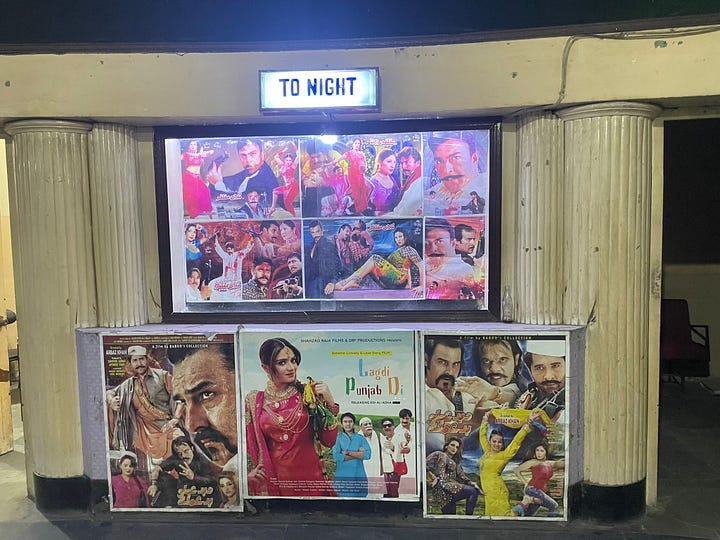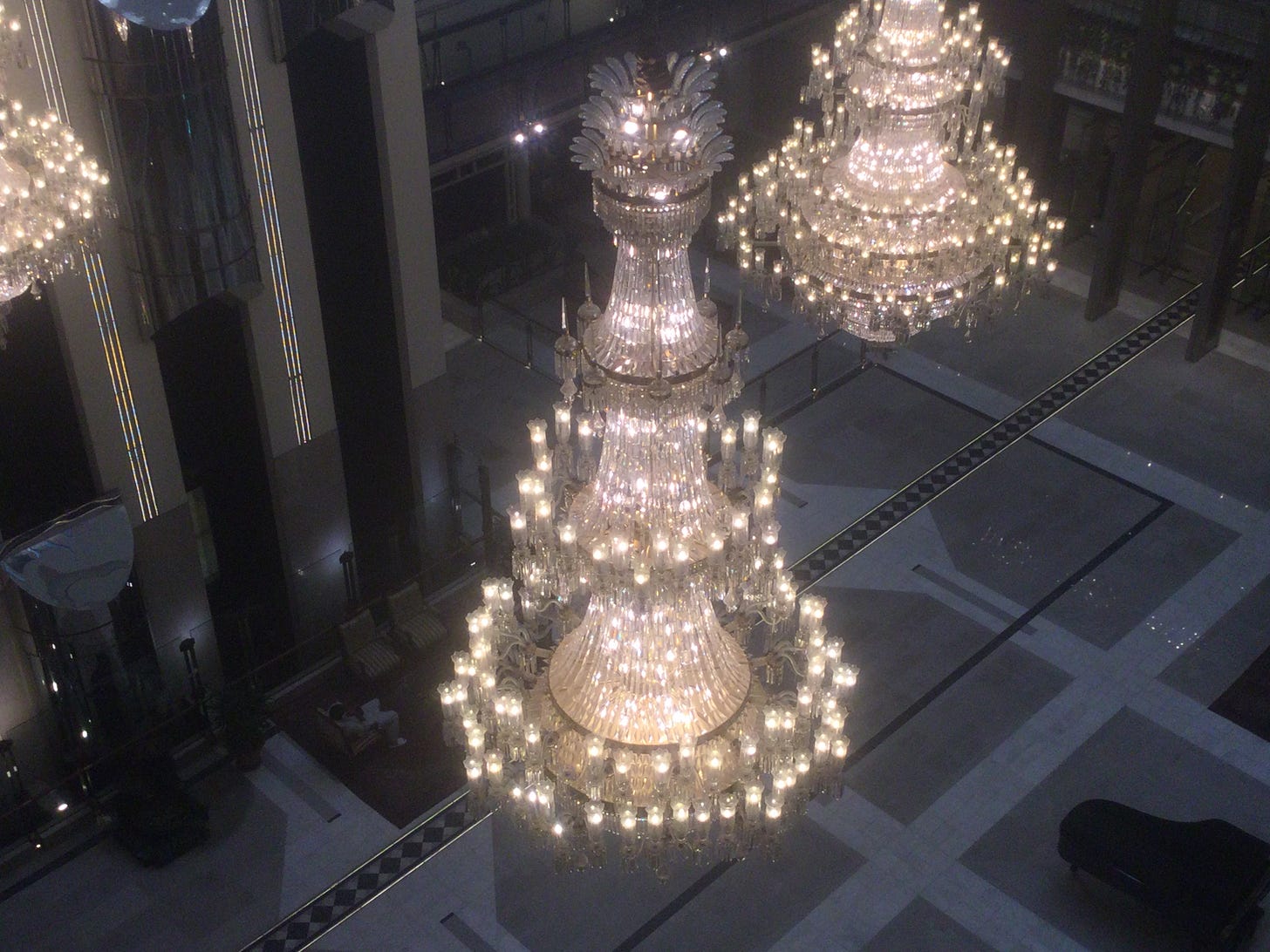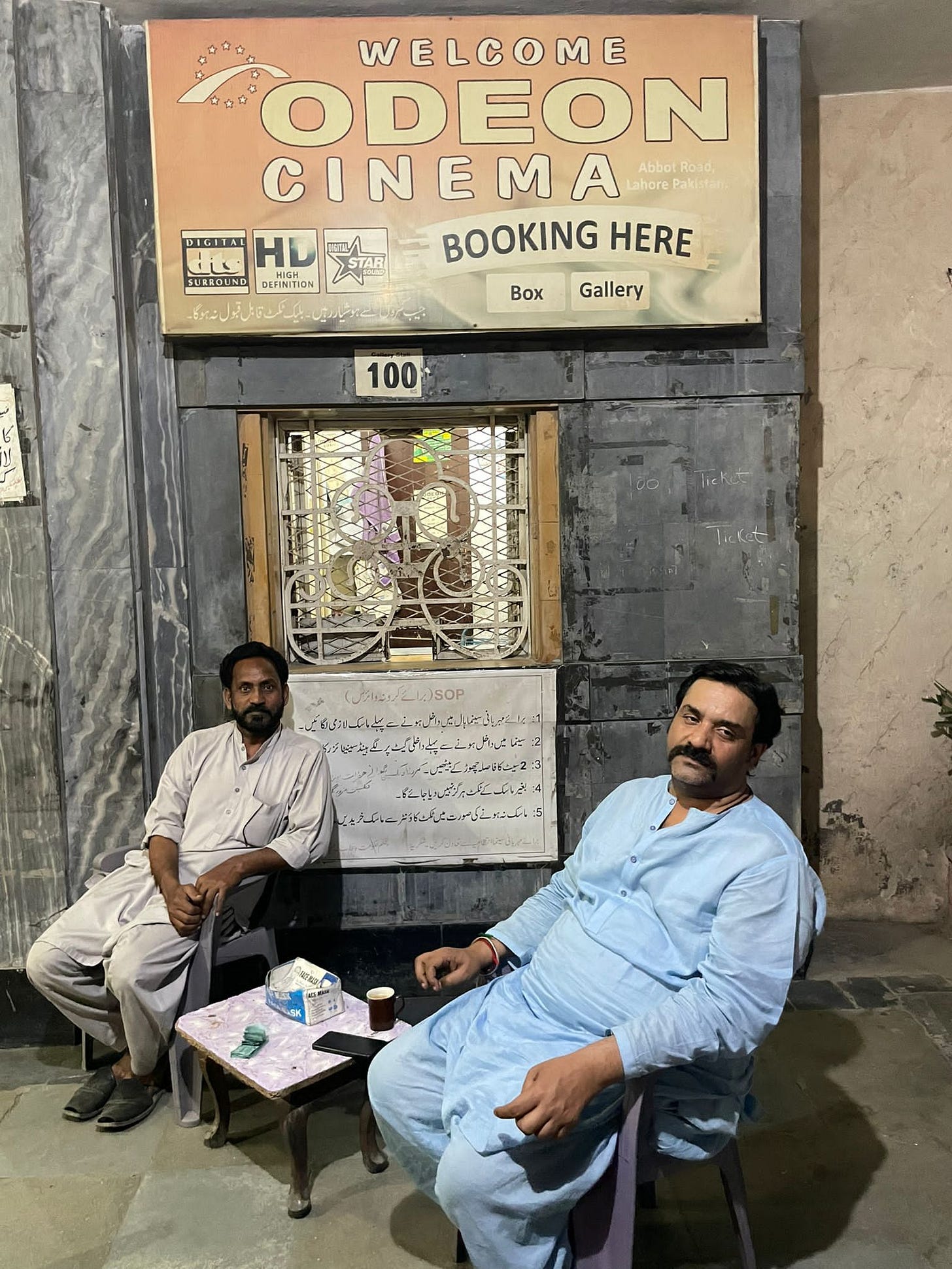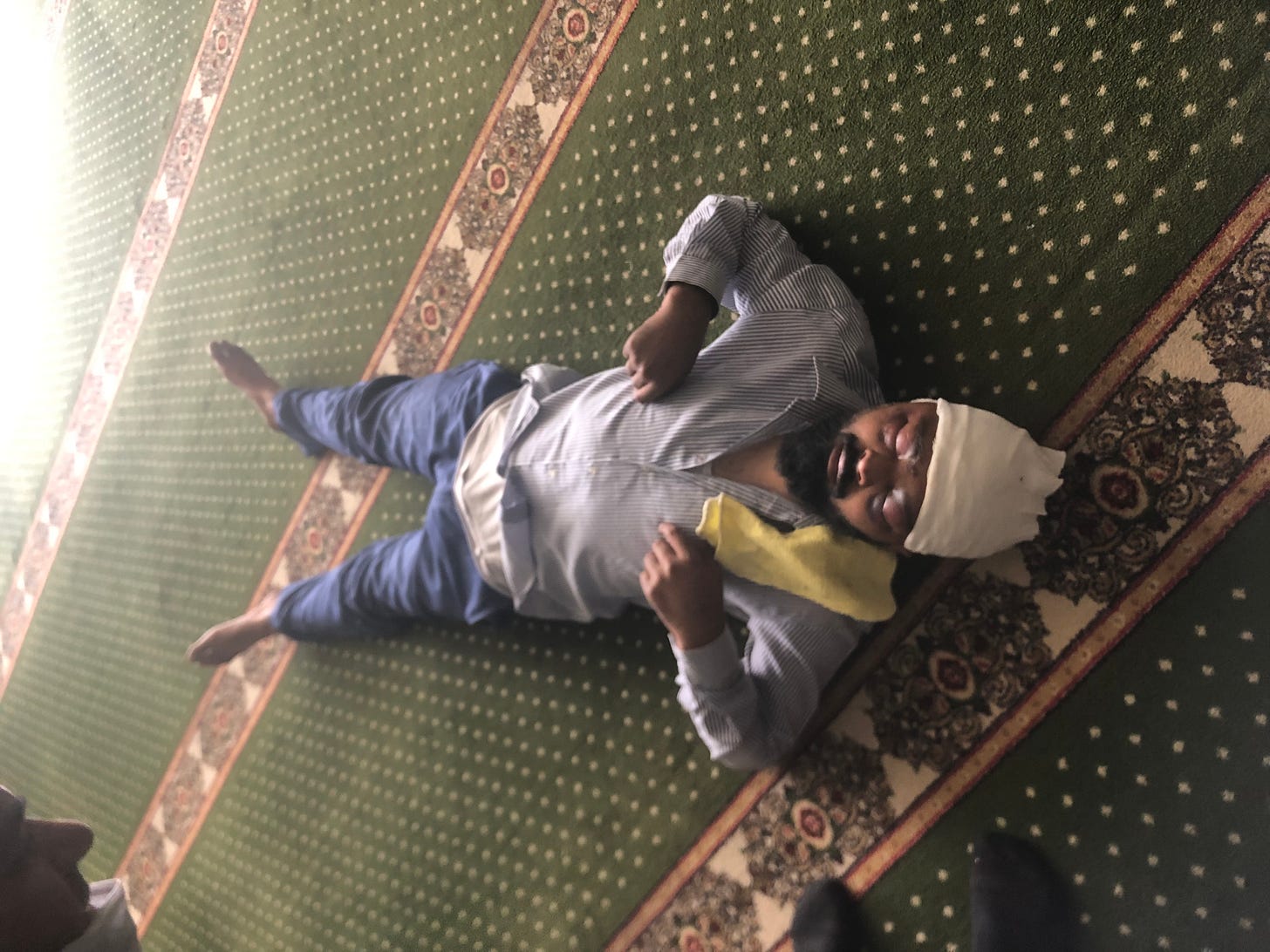Tales from the road
PL on the time he found himself praying over a hotel driver in a Lahore mosque
The woman from the reception intercepted me as I walked through Lahore’s elegant Pearl Continental Hotel foyer and said there were people in the mosque with “the driver” and they wanted to talk.
It was disconcerting to see her out from behind the desk, and the message she was trying to deliver was further confusing. I was already in the process of settling the bill with the journalists’ drivers, and I could see them sitting still at the establishment’s café. The Pearl Continental’s foyer is a time capsule from another era. Large chandeliers hang from high ceilings, and a vintage Rolls-Royce imported by the Nawab of Bhawalpur in the 1920s was parked in the corner.
I’d spent so much time there it had started to become something of a waiting room, but I didn’t know there was a mosque a short walk from the rear of the building.
I always say to Gideon when we’re travelling that we’re not having fun until we’re lost, but the events that were about to unfold made me think I’d lost touch with the world as I knew it.
Up there among the worst decisions I’ve made covering cricket was the one that saw me stay in Pakistan in 2022 after the third Test of the series had concluded. All three matches had gone the distance, and the only result, a win to Australia, came late on the 15th day.
I’d come this far, I figured, I may as well hang out for the three ODIs and a T20. Those four games seemed to take an eternity to pass.
We’d arrived at hotel in Lahore on March 13th for the last Test, and there we were until our plane left for home on April 6. It was a somewhat cloistered existence in the famous hotel. Covid was about, the teams were living in a form of Purdah, which meant the pool, gym and second dining room were exclusively theirs. Options for entertainment or distraction limited. Security was insane. Men armed with AK47s escorted the visitors about in armoured plated buses and the heat, when you did go out, soon sapped your energy.
I was climbing the walls with boredom. I’d play pool all day. Or listlessly wander through town. One afternoon I watched Shane Warne’s funeral from my four-poster bed. I filled in some hours by passing myself off as a foreign correspondent and reporting on the overthrow of Imran Khan’s government that had led to massive demonstrations. Bharat Sundaresen and I found some fun getting lost among the tethered goats and kites in the back streets of old Lahore. One night, we’d found ourselves unsettled in the art deco Odeon cinema that looked as if it had been abandoned a century before, but somehow managed to still project films onto a grimy screen for the handful of customers sitting in its broken rows.


The cricket had been gruelling, but a result was gained after 15 days on flat pitches. Rod Marsh, then Shane Warne, had died soon after we’d landed in Islamabad and tipped the cricket world from its known axis.
Most of the touring press party had left at the conclusion of the third Test. We’d had a send-off in the only bar in Lahore, conveniently located in the Pearl. I’d gone to bed early, and I woke in the morning to news that Adam Collins, or Collo, had been in a car accident on the way to the airport at some point in the evening or early morning. He’d been extremely lucky to survive; his driver even more so. They’d driven their vehicle under a truck on the way to the airport.
Now, a few days later, the woman from reception was insistent. It was the man who’d driven Collins to the airport now waiting for me in the mosque, she explained, but it couldn’t be, I replied. He’d had brain surgery a day or two earlier. I’d made sure to inquire after his welfare and learned he’d been in surgery for six hours and was out of danger but in ICU. He would be in hospital for a month, but his company and insurance were taking care of everything.
Her look indicated she was as disconcerted by this news he was in here as I was. She gestured for me to follow her backstage, past the grand piano and through the looking glass of the guest’s hotel and out the back.
Such establishments shed their pretensions quickly. Out there, an army of employees, significantly more dishevelled than the elegant front of house workers, went about their tasks unseen, it was vast, hot and uninviting.
The 30-year-old mosque doesn’t announce itself; it’s a functional square building, lacking the minarets and signature Islamic flourishes of the public establishments. It’s design a reflection of the hotel’s.
There were a few men on the steps whom we approached apprehensively. They looked like mourners, I could tell the woman from reception was as apprehensive as me about what was going on here. One man, in a blue security uniform and a beard, took the lead. He was the caretaker. He indicated that the others were the driver’s father and his employee. He said that the driver was inside, I wasn’t sure if I was supposed to go in. The female employee even less so, but he said it was fine, and we followed him into a cavernous prayer hall where the sunlight filtered through the screened walls, creating an alternating grid pattern on the carpet.
It took a moment for our eyes to adjust to the half-light, but sure enough, there he was, lying on the floor. His head wrapped in a bandage post brain surgery, his eyes swollen, and all life apparently extinguished from his body. I stopped and exchanged alarmed looks with the lady from reception. I don’t remember seeing her again, I assume she made a beeline back to the reality of attending to the well-heeled guests. The imam indicated I go ahead toward the man, but proximity provided no further confirmation of life.
He was an awful sight. The angle of his arms indicated rigor mortis. I started to ask if he was dead, but diverted mid-sentence out of respect for his clearly upset father. The old man looked broken by grief. I asked if he was conscious instead. The other man, whose name was Manzoor was the manager of the driver’s company. I understood he was a friend of the father as well. He assured me that the man on the floor was alive and I should talk to him.
I got down on my knees in the prayer hall and said something to the prone body of the man whose name, I would learn, was Rehman.
Keep reading with a 7-day free trial
Subscribe to Cricket Et Al to keep reading this post and get 7 days of free access to the full post archives.






